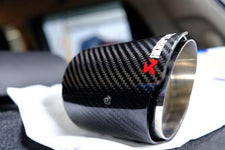When it comes to car customization, one area that many vehicle owners focus on is the exhaust system. However, if you're considering modifying your exhaust system, especially in countries like Germany, it's important to understand the laws and regulations surrounding exhaust modifications. In this blog, we’ll explain the key laws governing muffler and exhaust tip customization in Germany and why it’s crucial for car enthusiasts to be informed before making changes.
1. German Vehicle Regulation Overview
In Germany, the automotive industry is regulated by strict environmental and safety laws, and this extends to vehicle exhaust systems. The country follows EU-wide regulations on vehicle emissions, noise levels, and modifications. According to the Road Traffic Licensing Regulations (StVZO), any modifications made to the vehicle must ensure that the car is still roadworthy and meets emissions and noise requirements.
2. Muffler and Exhaust Tip Customization: What is Permitted?
When it comes to customizing your vehicle’s muffler or exhaust tips, German laws allow for modifications as long as they comply with specific criteria:
Emissions Standards: Modifications must not increase the vehicle's emissions beyond the legal limits. For example, swapping to a sports muffler or a different exhaust tip must not affect the exhaust gases emitted from the vehicle.
Noise Regulations: The noise level produced by the exhaust must remain within the legal limits specified by the German Federal Immission Control Act. If you install a louder muffler or exhaust tips, they could result in fines or even disqualification from the road if they exceed the acceptable noise levels.
Type Approval: If you install a custom muffler or exhaust system, it must be type-approved (TÜV-certified) to ensure it complies with the safety and emissions regulations. The TÜV (Technischer Überwachungsverein) is an organization that inspects and certifies vehicle parts and modifications in Germany. Non-compliant parts can lead to legal issues, fines, or the inability to register the vehicle.
3. What Does This Mean for Car Owners?
Car owners looking to install customized mufflers or exhaust tips should make sure they are using TÜV-approved products. It's also important to check that the modifications don’t violate noise and emissions standards. For instance, certain modifications like changing the exhaust pipe size, adding dual exhaust tips, or installing a sport muffler may require additional paperwork or inspections.
4. Consequences of Non-Compliance
If a vehicle modification is found to be non-compliant, it can have serious consequences:
-
Fines: Drivers may face fines for violating noise or emissions regulations.
-
Vehicle Registration Issues: If the modification is not TÜV-certified, the vehicle may fail inspection and not be registered or allowed on the road.
-
Insurance Complications: Some insurance companies may not cover a modified vehicle if the exhaust system or muffler doesn’t comply with the law.
5. Best Practices for Customizing Mufflers and Exhaust Tips in Germany
To stay within legal limits while customizing your exhaust system, here are a few best practices:
- Always choose TÜV-certified products: Ensure that the parts you install are officially approved by the TÜV.
- Maintain the original emissions standard: Any modifications should not increase the vehicle’s emissions, which could result in an environmental violation.
- Stay within noise limits: Opt for mufflers that meet the noise regulations in Germany, ensuring your vehicle stays street-legal.
- Consult with a professional: If you're unsure about a modification, consult with a certified mechanic or a specialist in automotive tuning.
For more information on high-quality and TÜV-approved exhaust tips and mufflers, check out our Wolf857 website, where we offer a variety of exhaust components designed to meet both performance and legal standards.







